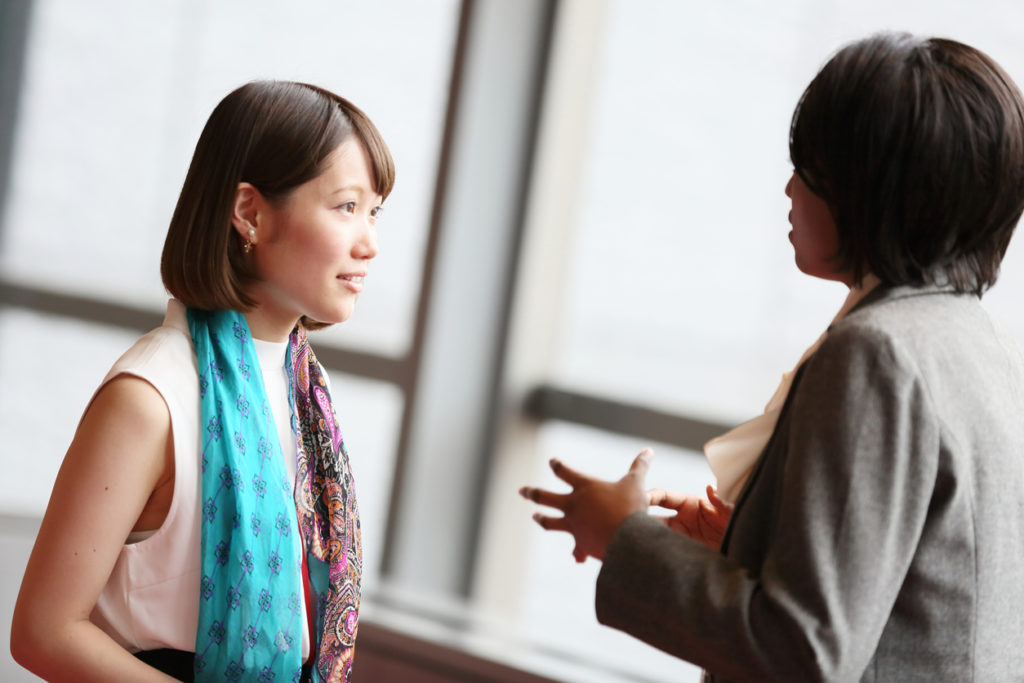If you’re like me, a large part of the joy of conversation comes from the ruffle-and-tumble exchange of thoughts and the joint race to the next new idea or twist in the discussion. But Japanese conversation tends to be a more sedate affair, at least outside your core group of best buddies. As a woman, here you are also expected to be polite and sensitive toward others and be able to express this through communicating. And while back home, we are more likely to just start a conversation with “Hey, lady!,” in Japan, you need to pass through some stages before you get there (if you ever do.)
If you’re struggling with initiating and keeping polite conversations here in Japan, (as we all have at some stage in our stay in Japan), check out the following tips which will help you make the right moves in this slower groove.

1. Use “Aizuchi”
You have surely noticed that an indispensable part of conversational Japanese is grunting – or to put that more accurately – giving verbal responses to the speaker during a conversation to show that you understand what they are saying. Called aizuchi (相槌) in Japanese, this practice is crucial for oiling the wheels of conversation, particularly on the phone. Women usually use a more melodious “hmm” or a long, soft “hai” (yes), or phrases such as “so desu ne,” literally “that is so,” or “taihen desu ne” (that’s tough), or “ii desu ne” (that’s good), with “ne” being added to show empathy. If you are in a formal conversation or being given instructions, the best aizuchi responses are “hai,”or “eee” (not, “eh?” though — just a prolonged, toned-down eeee) which you can slot in wherever necessary again and again, and a “wakarimashita” (I understand) to end with.
Click here to read more.
© Savvy Tokyo Take our user survey and make your voice heard.
Take our user survey and make your voice heard.















4 Comments
Login to comment
1glenn
In my experience, it is very easy to unintentionally offend any person raised in a strictly Asian culture.
GyGene
It is easy to offend anyone who is raised in a closed way, not taught about the rest of the world. Anyone.
Alexandre T. Ishii
If you have heard what is the word "Orientation" just think "Occidentation" doesn't exist, can you imagine why?
lucabrasi
@Alexandre
It's because the early Christians faced east when they prayed, as they believed Christ would arrive with the dawn at the second coming.
So churches today are oriented with the altar on the east side....